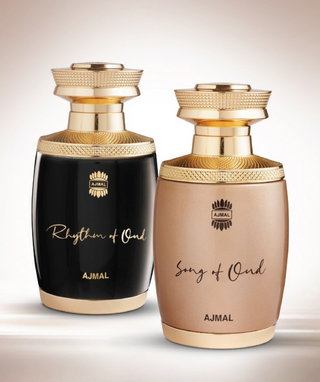Every legacy starts with a place, and for Ajmal, that place was Assam. Before it became a recognized name across fragrance counters in the Middle East, India, and beyond, Ajmal was simply a family’s quiet pursuit rooted in soil, tradition, and time. The journey from a small town to a global presence didn’t happen overnight. It took vision, patience, and a commitment to doing things the right way, always.
This is the story of how Ajmal became more than a brand. It became a name people trusted, remembered, and passed down.
From Assam: Where It All Began
Ajmal’s beginnings can be traced back to the 1950s in Hojai, a small town in Assam known for its forests and natural resources. Haji Ajmal Ali, the founder, started his work with locally sourced natural oils which many knew then as attars. He wasn’t building a business at first. He was following a craft, blending oils by hand, selling to local traders, and slowly learning how scent connects to memory, place, and people.
At the time, Assam was not on the map for perfumery. But what the region lacked in industry, it offered in raw, untouched potential. The quality of natural ingredients, particularly oud and other forest-derived materials, became the backbone of Ajmal’s early identity. What set it apart was not just what was used, but how it was treated, with care, detail, and patience.
Crossing Borders: Finding a New Audience in the Middle East
As Ajmal’s oils started reaching beyond Assam, the Middle East quickly became a key destination. It was not just about expanding to a new market. It was about finding people who understood and valued the kind of fragrances Ajmal was creating.
In places like Dubai and Riyadh, perfume is part of everyday life. People wear it not just for occasions but as a part of who they are. When Ajmal entered the scene, the response was real. Customers noticed the richness, the staying power, and the honesty behind the products. They connected with it.
What started with small exports slowly turned into something bigger. Stores opened. Word spread. Ajmal found a place in the region, not as a trend, but as a brand people trusted and kept coming back to.
Coming Home: Growing Across India
After finding success in the Middle East, Ajmal turned its attention back to India. This time, it was not just about small-batch attars or local trade. It was about building a brand that could stand tall in a fast-changing market, while still staying true to its roots.
India was different by then. Consumers were exploring perfumes more openly, and there was growing interest in quality and identity over just price or packaging. Ajmal saw the shift and stepped in with something that felt familiar but refined. The brand started opening stores, partnering with retailers, and making its presence known in both big cities and smaller towns.
What helped was trust. Many Indian families already knew the name of some from the Gulf, others through word of mouth. Ajmal did not need to introduce itself; it just needed to show up with the same care and consistency it was known for. And it did.
Legacy Through Generations
Ajmal did not grow because of luck or timing. It grew because the family behind it kept building on what was started. After Haji Ajmal Ali laid the foundation, his sons stepped in not just to expand the business, but to protect what made it meaningful. They respected the work that came before them and carried it forward with care.
Each generation added something of its own. Some focused on taking the brand to new places. Others worked on making sure Ajmal stayed consistent as it grew. But what stayed the same was the approach. This was still a family-run brand, built on relationships, trust, and a deep belief in the value of good work done right.
That steady hand over the years is part of why people still connect with the name. It never lost touch with where it came from or who it was for.
A Global Identity, Rooted in Values
Today, Ajmal’s name travels far beyond where it started. You will find its fragrances in stores across Asia, in airports, and homes around the world. What makes that special is not just the reach, but the way the brand has stayed true to its values while growing.
Ajmal did not try to change itself to fit every market. It focused on what it does well, creating honest, long lasting fragrances that people can connect with. That simple approach has worked because it’s real. Customers come back not just for the scent, but for the feeling it brings, the memories it holds, and the trust that’s been built over time.
Even as the brand keeps growing, it still feels personal. It still feels like something made with care. That is what makes Ajmal more than just a name on a shelf. It feels familiar, no matter where you find it.
Conclusion
Ajmal’s journey did not follow a straight line. It started small, grew quietly, and earned its place through steady, honest work. What began in Assam has now reached people all over the world, not because of big campaigns or shortcuts, but because the brand stayed close to what it believes in.
Even with all the growth, Ajmal still feels personal. It’s a brand that people trust, often because they have lived with it for years. It’s part of family traditions, special moments, and everyday routines. That kind of connection doesn’t happen overnight. It comes from doing things right, again and again.
Ajmal may have become a global name, but it still carries the spirit of where it started. And that’s what makes its legacy feel real.






